Filter by
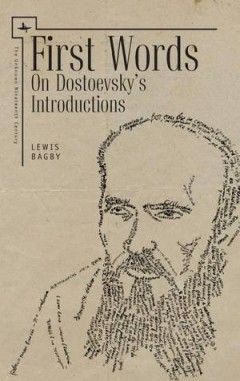
First Words : On Dostoevsky's Introductions
Dostoevsky attached introductions to his most challenging narratives, including Notes from the House of the Dead, Notes from Underground, The Devils, The Brothers Karamazov, and A Gentle Creature. Despite his clever attempts to call his readers' attention to these introductions, they have been neglected as an object of study for over 150 years. That oversight is rectified in First Words, the fi…
- Edition
- -
- ISBN/ISSN
- 9781618114822
- Collation
- -
- Series Title
- -
- Call Number
- 800 BAG f
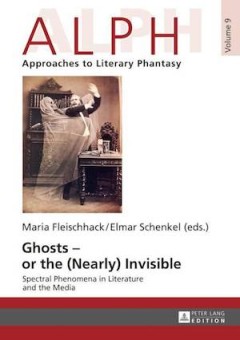
Ghosts - or the (Nearly) Invisible : Spectral Phenomena in Literature and the…
In this volume, ghost stories are studied in the context of their media, their place in history and geography. From prehistory to this day, we have been haunted by our memories, the past itself, by inklings of the future, by events playing outside our lives, and by ourselves. Hence the lure of ghost stories throughout history and presumably prehistory. Science has been a great destroyer of myth…
- Edition
- -
- ISBN/ISSN
- 9783631665664
- Collation
- 170 halaman
- Series Title
- -
- Call Number
- 800 FLE g
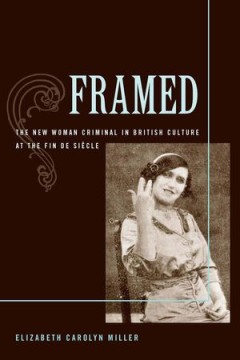
Framed : The New Woman Criminal in British Culture At The Fin De Siecle
In 1901, R. W. Paul, one of Britain’s first filmmakers, releasedThe Countryman and the Cinematograph,a film that reflexively “explains” cinema just five years into this new narrative form. It depicts a countryman at the movies, who mistakes cinematic illusion for real-world phenomena: he attempts to dance with a lovely on-screen dancing girl (figure 1) and flees a filmic train seemingly m…
- Edition
- -
- ISBN/ISSN
- 9780472900473
- Collation
- 295 halaman
- Series Title
- -
- Call Number
- 800 MIL f
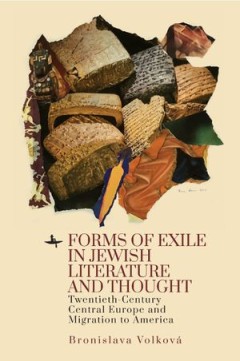
Forms of Exile in Jewish Literature and Thought : Twentieth-Century Central E…
Forms of Exile in Jewish Literature and Thought deals with the concept of exile on many levels—from the literal to the metaphorical. It combines analyses of predominantly Jewish authors of Central Europe of the twentieth century who are not usually connected, including Kafka, Kraus, Levi, Lustig, Wiesel, and Frankl. It follows the typical routes that exiled writers took, from East to West and…
- Edition
- -
- ISBN/ISSN
- 9781644694053
- Collation
- 120 halaman
- Series Title
- -
- Call Number
- 800 BRO f
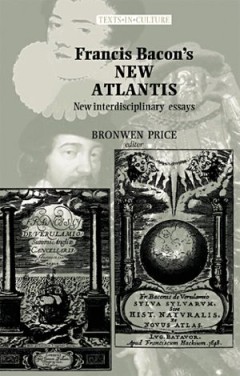
Francis Bacon's New Atlantis
The New Atlantis has fired the imaginations of its readers since its original appearance in 1627. Often regarded as the apotheosis of Bacon's ideas through its depiction of an advanced 'scientific' society, it is also read as a seminal work of science fiction. Standing at the threshold of early modern culture, this key text incorporates the practical and visionary, utility and utopia. This volu…
- Edition
- -
- ISBN/ISSN
- 9781526137388
- Collation
- 224 halaman
- Series Title
- -
- Call Number
- 900 FRA
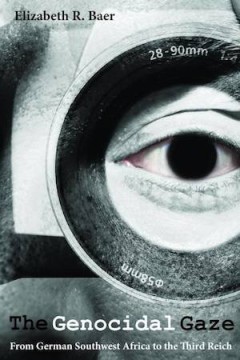
The Genocidal Gaze : From German Southwest Africa to the Third Reich
The first genocide of the twentieth century, though not well known, was committed by Germans between 1904–1907 in the country we know today as Namibia, where they exterminated hundreds of Herero and Nama people and subjected the surviving indigenous men, women, and children to forced labor. The perception of Africans as subhuman—lacking any kind of civilization, history, or meanin…
- Edition
- -
- ISBN/ISSN
- 9780814343852
- Collation
- -
- Series Title
- -
- Call Number
- 900 BAE g
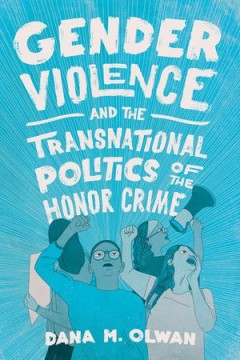
Gender Violence and the Transnational Politics of the Honor Crime
In Gender Violence and the Transnational Politics of the Honor Crime, Dana M. Olwan examines how certain forms of violence become known, recognized, and contested across multiple geopolitical contexts—looking specifically at a particular form of gender-based violence known as the “honor crime” and tracing how a range of legal, political, and literary texts inform normative and critical un…
- Edition
- -
- ISBN/ISSN
- 9780814214664
- Collation
- -
- Series Title
- -
- Call Number
- 362 OLW g
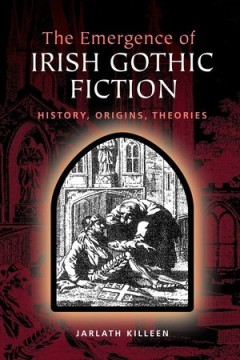
The Emergence of Irish Gothic Fiction : Histories, Origins, Theories
Provides a new account of the emergence of Irish gothic fiction in mid-eighteenth century. This book provides a robustly theorised and thoroughly historicised account of the "beginnings" of Irish gothic fiction, maps the theoretical terrain covered by other critics, and puts forward a new history of the emergence of the genre in Ireland. The main argument the book makes is that the Irish gothic…
- Edition
- -
- ISBN/ISSN
- 9780748690817
- Collation
- 248 halaman
- Series Title
- -
- Call Number
- 800 KIL e
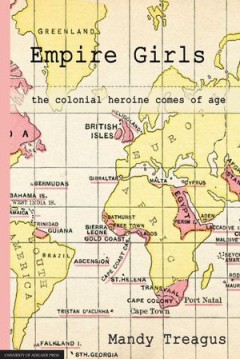
Empire Girls : The Colonial Heroine Comes of Age
Empire Girls: the colonial heroine comes of age is a critical examination of three novels by writers from different regions of the British Empire: Olive Schreiner’s The Story of An African Farm (South Africa), Sara Jeannette Duncan’s A Daughter of Today (Canada) and Henry Handel Richardson’s The Getting of Wisdom (Australia). All three novels commence as conventional Bildungsromane, yet t…
- Edition
- -
- ISBN/ISSN
- 9781922064554
- Collation
- -
- Series Title
- -
- Call Number
- 800 TRE e
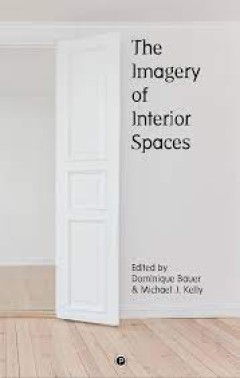
The Imagery of Interior Spaces
On the unstable boundaries between “interior” and “exterior,” “private” and “public,” and always in some way relating to a “beyond,” the imagery of interior space in literature reveals itself as an often disruptive code of subjectivity and of modernity. The wide variety of interior spaces elicited in literature — from the odd room over the womb, secluded parks, and train c…
- Edition
- -
- ISBN/ISSN
- 9781950192199
- Collation
- -
- Series Title
- -
- Call Number
- 800 IMA
 Computer Science, Information & General Works
Computer Science, Information & General Works  Philosophy & Psychology
Philosophy & Psychology  Religion
Religion  Social Sciences
Social Sciences  Language
Language  Pure Science
Pure Science  Applied Sciences
Applied Sciences  Art & Recreation
Art & Recreation  Literature
Literature  History & Geography
History & Geography